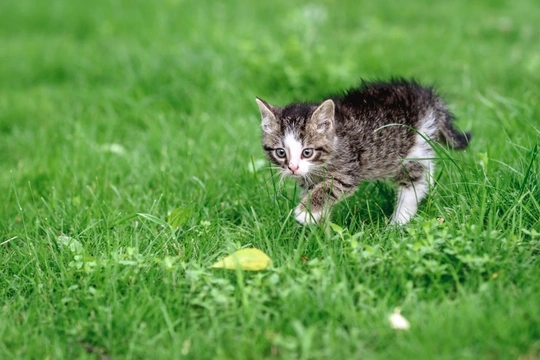
Some frequently asked questions about cats and hunting behaviour
Cats and hunting behaviour generally go hand in hand, although this might not necessarily mean that you’ll be unlucky enough to see the tangible results of this in the form of small, dead presents! Whether your cat hunts live prey or not, and whether they actually catch anything or not, there is not a cat in the world that doesn’t suddenly liven up at the sight of a fluffy toy, laser pointer or possibly, a chattering bird, depending on what their own particular favourite is!
While many cat owners simply accept this as a normal part of cat ownership (which it is) many others often wonder about some of the odder or seemingly inexplicable sides of cats and their manifestations of hunting behaviour, and so in this article, we will cover some of the most frequently asked questions from cat owners about it, and the truth behind them. Read on to learn more.
Is hunting behaviour instinctive or taught?
The nature or nurture question when it comes to hunting is often the first thing that cat owners will ask, and the answer isn’t entirely black and white. All kittens are born with an innate, instinctive urge to hunt, but how to hunt successfully is something that is partially taught by the mother cat.
In the wild, once the kittens reach a certain age, the mother cat will catch live prey and bring it back to her litter, in order to show them how to catch and kill it, and essentially, teaching the kittens how to put their hunting urges to work to feed themselves.
However, even kittens that are hand-reared or that never observe another cat hunting are apt to display their own forms of hunting behaviour, although what triggers it and how successful their endeavours are can be highly variable!
Why do cats have the urge to hunt when they’re well fed?
While it is self-evident that a cat that is going hungry or that is only fed erratically will hunt more than a cat that is well fed, cats that are incredibly well fed and well cared for will often still hunt! This comes back once again to the instinctive prey drive. Well-fed cats might never have gone short of food in their lives, but cats are inherently opportunistic when it comes to hunting, although not so much eating (which is why most cats can be trusted to free-feed without becoming obese) and so, will rarely miss the chance to pursue something that pings their radar-whether that is a toy or a mouse!
Added to which, hunting provides entertainment, enrichment and a chance to keep fit for your cat too, and so, encouraging your cat to play-hunt can actually be good for them.
Why do cats play with their prey?
One aspect of cat hunting behaviour that many owners find the most unpalatable is the propensity of cats to play with their prey-unless they are particularly hungry, few cats will go straight in for the kill right away, often spending protracted periods of time throwing their prey around, and generally, dragging things out as much as possible. The reasons behind this are multiple and complex, and it is impossible to say exactly what is going on in your own cat’s mind at any given time, but some of the most common explanations for cats playing with their prey are in order to wear it out for an easier kill without risking being bitten themselves, and also, simply for entertainment.
Additionally, as mentioned above, mother cats will keep their prey alive to take back to their litter in order to teach them how to hunt as well, and so if you own a female cat, this may be part of the reason too.
Why do cats bring you dead “presents?”
While some cats will get most annoyed and defensive if you try to take their prey from them, other cats are apt to bring their kills in with great fanfare, chirping, vocalising and generally doing everything that they can to let you know how clever they have been, and awarding you with their kill as a special present!
While this really does not tend to appeal very much to our human sensibilities, to your cat, this makes perfect sense-although there are two schools of thought surrounding why cats do this, and equally, both of them might be true for different cats at different times!
One theory is that your cat is bringing you a reward as the head of the household and their favourite person, as a truly special gift. However, a much more likely explanation is that your cat simply sees you a giant bald cat that’s really bad at catching things, and so your cat is making sure you get fed!
Additionally, you might think that scolding your cat, telling them off or ignoring them would be the obvious way to discourage them from doing this again in the future, but in fact the opposite is true-if your cat does not feel as if you are impressed and grateful with their kill, they are apt to go back out again and try to find you something better!
Why do cats shake their heads and wiggle their butts before they pounce?
Finally, the cat butt-wiggle and head shake can be rather amusing to watch, and appears to come across as a shiver of excitement of otherwise, generally irrelevant behaviour when it comes to hunting-but in fact, this is not true!
Right before a cat pounces, they will make a final check to ensure that they have homed in on their target properly and are likely to get it, and this means adjusting their binocular vision in order to correctly assess the depth and distance. Shaking the head or wiggling seem to achieve this for cats, and that is why they do this before pouncing!



